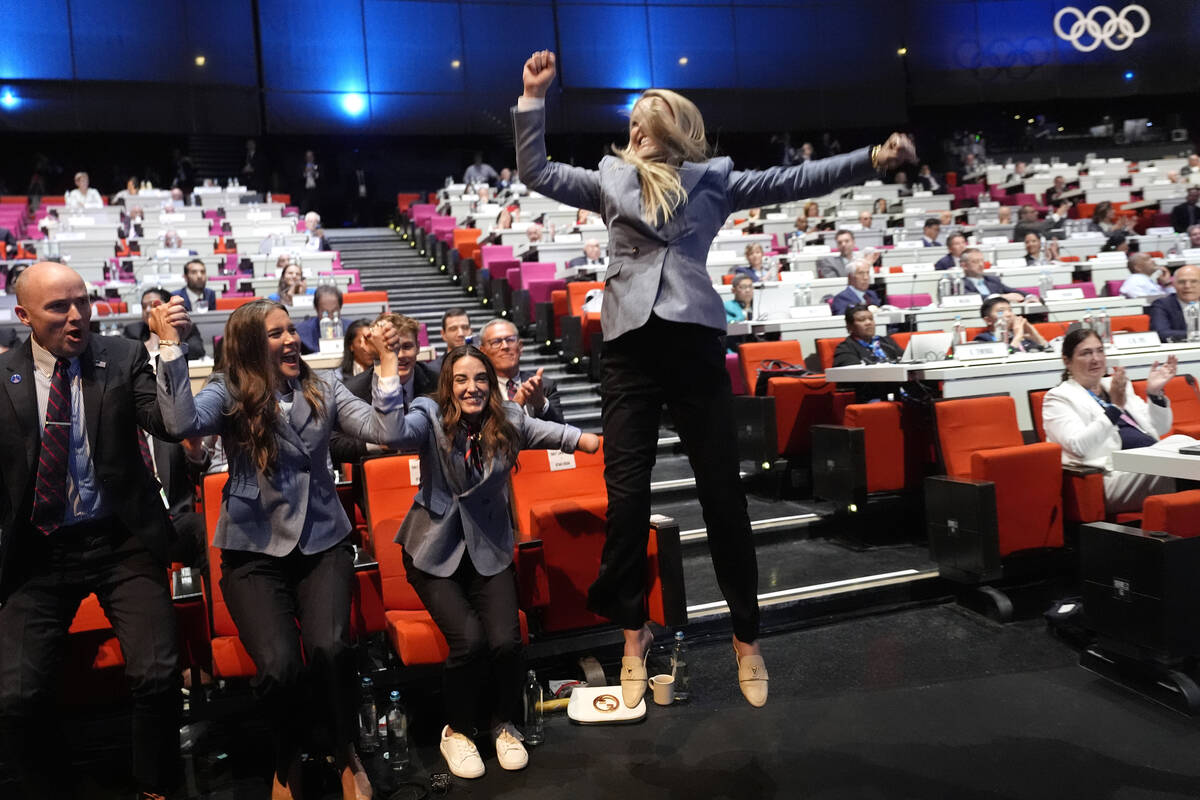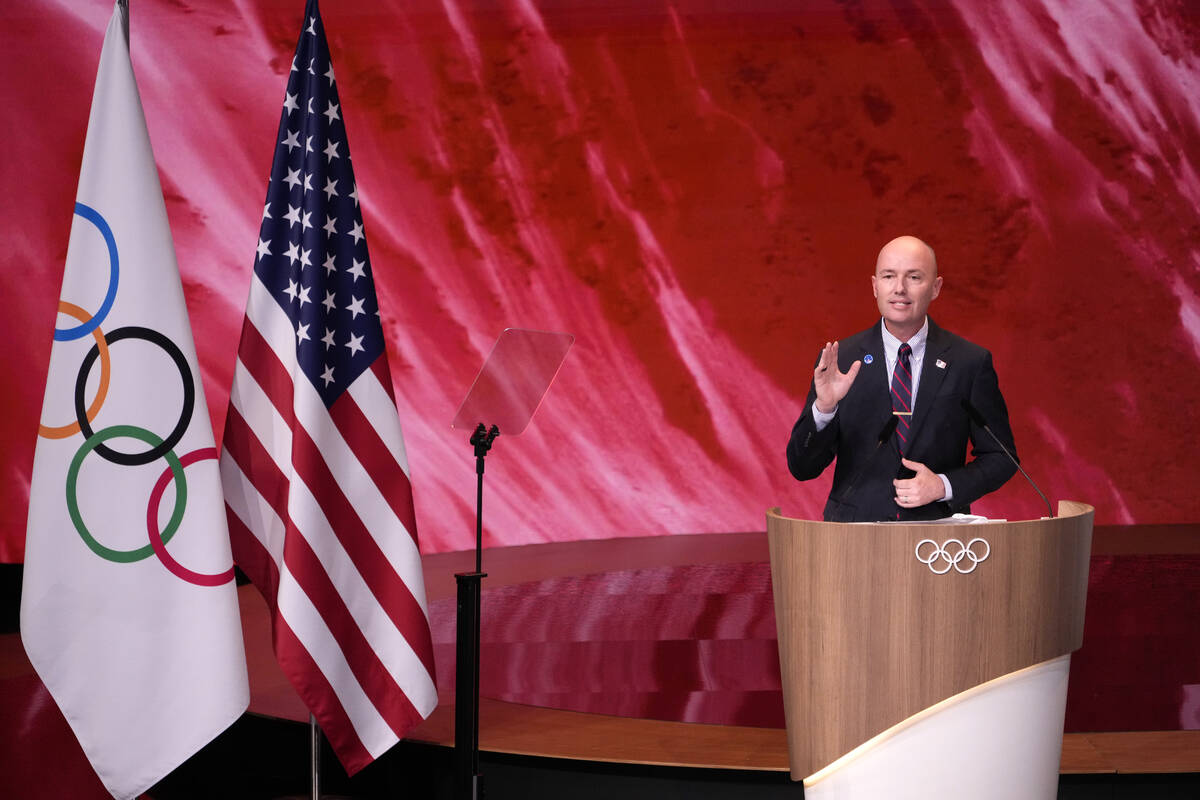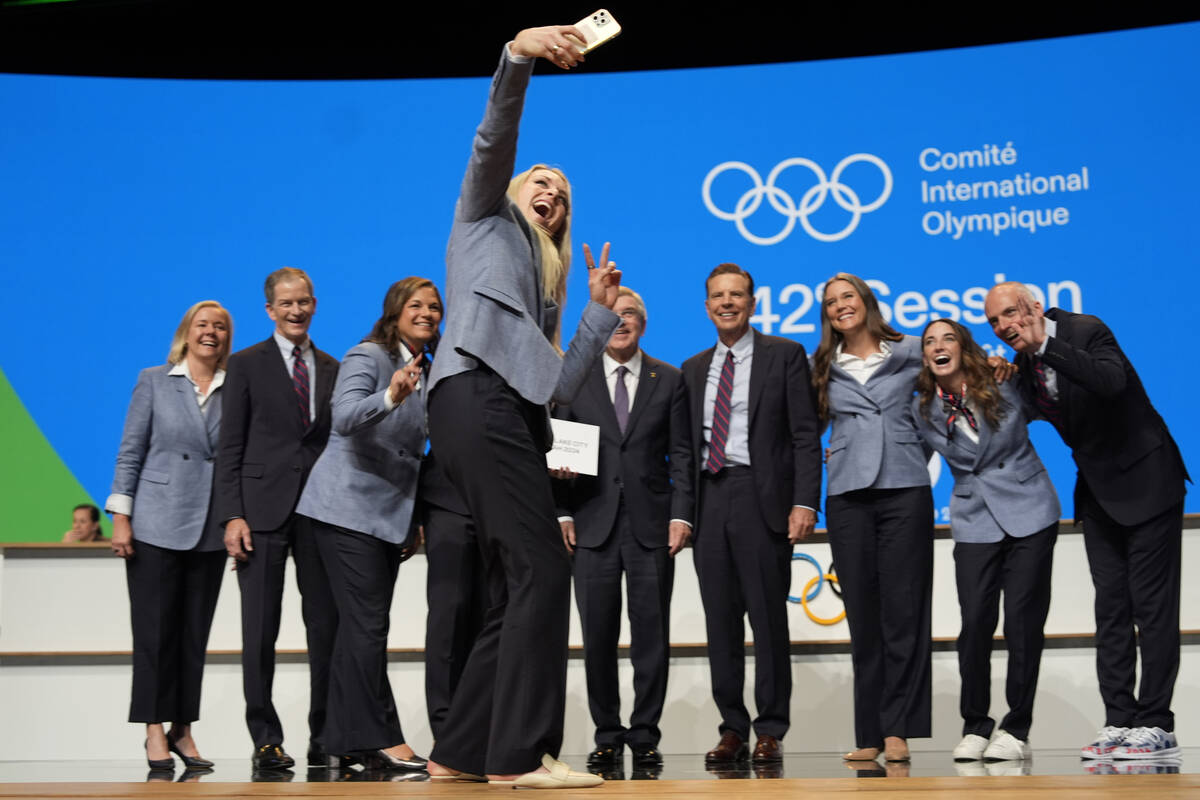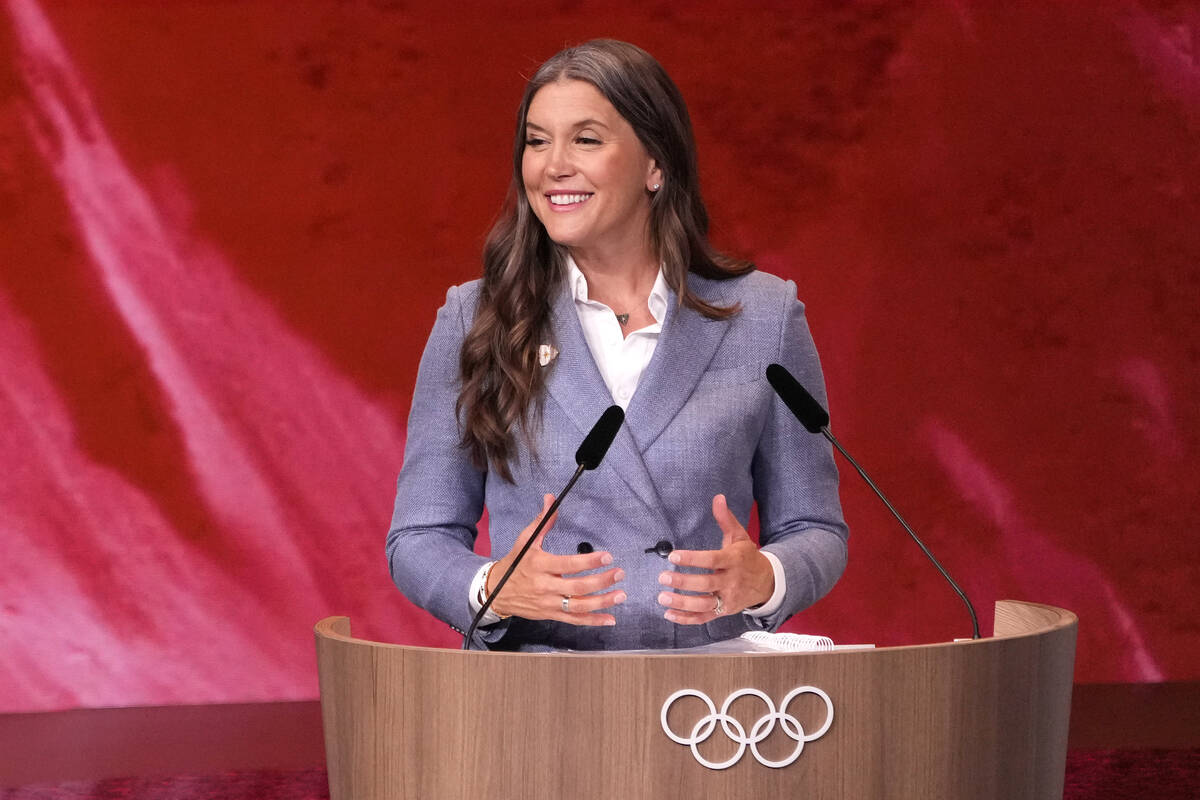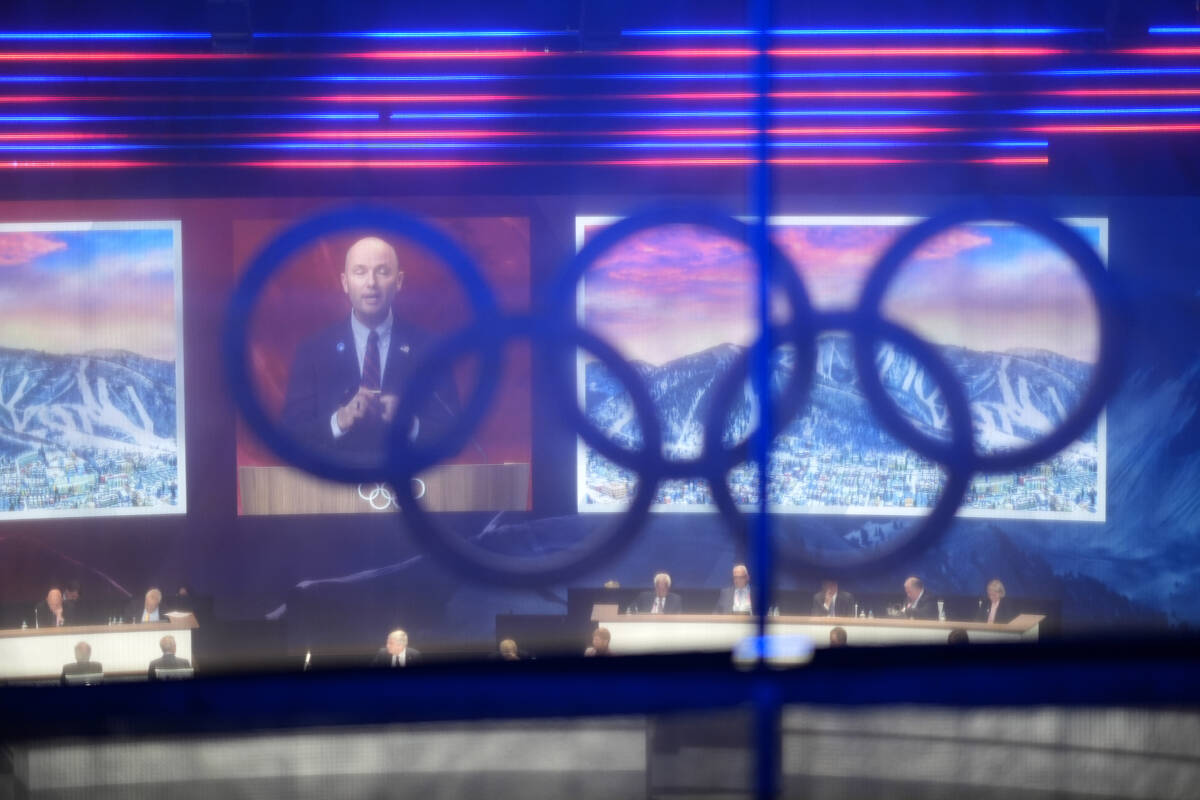IOC awards 2034 Winter Games to Utah after requesting a favor
PARIS — What was expected to be a simple coronation of Salt Lake City as the 2034 Winter Olympic host turned into complicated Olympic politics Wednesday, as the IOC pushed Utah officials to end an FBI investigation into a suspected doping coverup.
The IOC formally awarded the 2034 Winter Games to Salt Lake in an 83-6 vote, but only after a contingent of Utah politicians and U.S. Olympic leaders signed an agreement pledging to lobby the federal government to end the investigation and to change the anti-conspiracy law that allows such a case.
The International Olympic Committee is angry about an ongoing U.S. federal investigation of suspected doping by Chinese swimmers who were allowed to compete at the Tokyo Games despite positive drug tests. The World Anti-Doping Agency (WADA) accepted Chinese explanations for the tests, and U.S. officials are now investigating that decision under an anti-conspiracy law passed after the Russian doping scandal at the Sochi Winter Games.
President Thomas Bach wants to make sure WADA is the sole authority on Olympic doping cases, especially with the Summer Olympics headed to Los Angeles in 2028. The IOC added a clause to Salt Lake’s host contract, demanding that local organizers - including Utah Gov. Spencer Cox - push to shut down the investigation or risk losing the Olympics.
Cox and others promised to lobby the U.S. president and Congress.
“We agree that if the United States does not support or violates the World Anti-Doping Federation’s rules, that they can withdraw the Games from from us and from the United States, ” Cox said after the announcement. “That was the only way that that we could we could guarantee that we would get the Games.”
Even in the world of Olympic diplomacy, it was a stunning power move to force government officials to publicly agree to do the IOC’s lobbying.
U.S. Olympic and Paralympic Committee Chair Gene Sykes said some athletes and officials from other countries are worried that the anti-conspiracy law would allow the U.S. to arrest Olympic visitors.
Some officials “have been very anxious about what it would mean to the sports figures who came to the United States, somehow they were subject to uncertainty in terms of their freedom of travel,” Sykes said. “And that is always concerning to people who don’t understand the United States.”
The capital city of Utah was the only candidate after the IOC gave Salt Lake City exclusive negotiating rights last year in a fast-tracked process.
The campaign team presenting the bid on stage to IOC members included Cox, Salt Lake City Mayor Erin Mendenhall and Alpine ski great Lindsey Vonn. Back home, a 3 a.m. public watch party gathered to see the broadcast from Paris.
The clause inserted into the contract requires Utah officials to to work with current and future U.S. presidents and members of Congress “to alleviate your concerns” about the federal investigation into doping.
WADA’s role is under scrutiny for accepting a Chinese investigation that declared all 23 swimmers were contaminated by traces of a banned heart medication in a hotel kitchen. Three Chinese gold medals in the Tokyo Olympic pool were won by swimmers implicated in the case. Some are also competing in Paris next week.
The case an be investigated in the U.S. under federal legislation named for a whistleblower of Russian state doping at the 2014 Sochi Winter Games.
The IOC and WADA lobbied against the law, known as the Rodchenkov Act, which gives U.S. federal agencies wide jurisdiction of doping enforcement worldwide.
“We will work with our members of Congress,” Gov. Cox told Bach and IOC voters ahead of the 2034 vote, “we will use all the levers of power open to us to resolve these concerns.”
Salt Lake City first hosted the Winter Games in 2002. That bid was hit with a bribery scandal, which led to anti-corruption reforms at the IOC.
Future U.S. Sen. Mitt Romney was brought in to clean up the Games, which went off well despite tightened security. The Games were the biggest international sports event hosted by the U.S. following the Sept. 11 attacks five months earlier
It is an Olympic tradition for lawmakers and even heads of state to come to an IOC meeting and plead their case to be anointed as an host city.
Russian President Vladimir Putin did it in 2007, speaking in English to secure the 2014 Winter Games for Sochi. British Prime Minister Tony Blair made a key intervention in 2005 to help win the 2012 Olympics for London. U.S. President Barack Obama’s visit to Copenhagen in 2009 did not help in Chicago’s losing cause for the 2016 Summer Games that went to Rio de Janeiro.
For its second turn, Salt Lake City will get almost 10 full years to prepare — the longest lead-in for a modern Winter Games — amid longer-term concerns about climate change affecting snow sports and reducing the pool of potential hosts.
It will be the fifth Winter Games in the U.S. Before Salt Lake City in 2002, there was Lake Placid in 1980 and 1932, and Squaw Valley — now known as Olympic Valley — in 1960.
In a separate decision earlier in Paris, the 2030 Winter Games was awarded to France for a regional project split between ski resorts in the Alps and the French Riviera city Nice.
That project needs official signoff from the national government being formed, and the Prime Minister yet to be confirmed, after recent elections called by President Emmanuel Macron. He helped present the 2030 bid Wednesday to IOC members.



